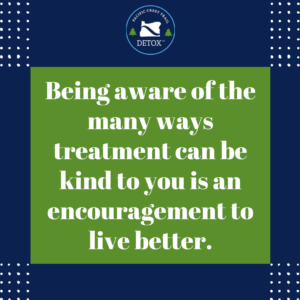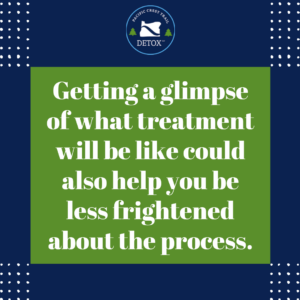Substance use disorder (SUD) is more complicated than one could imagine. It’s more than just trauma, peer pressure, and genetic dispositions that most people already know about. The prejudice against substance use disorder could also make people feel ashamed of themselves, maybe even angry. This is most likely why it is difficult for people to recover from addiction.
Understanding why people suffer from SUD starts with being kind, learning tendencies, and knowing about the substance one might be addicted to.
Understanding The Barriers To Treatment
The first step to substance abuse treatment is acknowledging that you need help. But it’s also important to understand why you might be hesitant.
Ready for a reality check? Here are some reasons that may resonate with you.
Stigma And Shame
Even if current times are more progressive, you may still worry about how society views addiction. Maybe you fear the potential shame from your peers and family. Perhaps you are even ashamed of yourself. It doesn’t help that society often thinks of addiction as a moral and personal failure and that it must be a choice.
In reality, addiction is a complex medical condition that depends on environmental, genetic, and psychological factors. But some people don’t seem to understand it, which might prevent you from asking for help.
Denial Of Condition
Another struggle is failing to realize how severe your addiction is. Have you ever caught yourself internally rationalizing your addiction? Perhaps you reason, “It’s just one glass,” or that everyone in your social circle is doing too.
Denying that you may have a problem also delays the start of your treatment, and your condition may get worse. Even if you know the consequences, this may be challenging if you aren’t ready to acknowledge the problem or haven’t been educated about addiction yet.
Access To Care
There are also systematic challenges at play. For instance, being too far from medical detox facilities and recovery centers may hinder you from treatment. Other times, you may think it’s not worth the travel or the time.
A tight budget could stop you from reaching out, especially when you think there are more urgent priorities. Remember, low-income Americans are at higher risk for substance abuse disorder and have significantly less access to treatment.
Fear Of Legal Repercussions
For a very long time, drug and alcohol abuse was considered a crime. You may be concerned about facing criminal charges, losing custody of your children, or being fired. This could get worse when you realize that about 19% of American prisoners still engage in using drugs like cocaine and heroin in jail.
As you may have experienced, fearing these consequences and possibilities could discourage you from seeking treatment.
Awareness Of Options
The idea of addiction recovery could get overwhelming. After all, the media has always framed it as a few days locked up in a white room, strictly observed by therapists and counselors. And if you’ve looked for genuine experiences, all of the new patients always seem to be crying and struggling with withdrawal.
The truth is, substance abuse treatment is nothing like that. It’s challenging, yes. But know that it can be kind, and it exists to help you with your substance abuse disorder. Whether it’s medical detox, counseling, therapy, or support groups, there’s an option that can cater to you. Being aware of the many ways treatment can be kind to you is an encouragement to live better.
Strategies To Encourage Treatment
As difficult as it may be to get the help you need, it’s not a dead end. There will always be ways for you to recover, have better mental health, and have another chance at life.
Here are some of the systematic strategies that can make the process easier.
Reducing Stigma
Advocacy campaigns, media representation, and community education could do a lot to normalize addiction treatment. Done right, this could reduce stigma and make more people shift to accepting that substance abuse disorder is a medical condition.
In an environment where you feel accepted and respected, you could begin to seek help without worrying about discrimination and judgment.
Peer Support
Your support networks can largely contribute to your treatment. Family and friends rooting for you to start and sustain recovery will keep you going. Sharing goals and celebrating milestones with those you meet in treatment can also make you feel safer.
All the support you can get is crucial during this time. And knowing that you are a source of support for them could also keep you motivated.
Improving Access
A lot of the problems surrounding addiction recovery are related to its inaccessibility. By slowly implementing policies and initiatives that provide insurance coverage and funds to treatment programs, substance abuse treatment could be a little easier.
Legal Protections
Laws that provide immunity for non-violent substance abuse offenses are crucial to solving treatment hesitation. Alongside this, laws that ensure you are not discriminated against in employment, housing, and custody for treatment remove your fear of being punished.
These will protect you, but the implementation of these laws will also emphasize that substance abuse disorder is not a crime.
Increasing Awareness
Substance abuse disorder is very misunderstood, and the lack of education regarding it doesn’t help. Educational campaigns where myths and misconceptions about addiction are clarified could decrease stigma and discrimination. Getting a glimpse of what treatment will be like could also help you be less frightened about the process.
Remember, there are a lot of options for you to consider. Now, it’s only a matter of knowing what these are and finding the one that works for you.
In Conclusion
Overcoming substance abuse disorder is as complicated as the addiction itself. From logistical challenges to societal stigmatization and
discrimination, it’s like the problems don’t end. But take comfort in knowing that education, fund reallocation, and legal protection can help. By making everyone aware of these, you and your peers could eventually find yourself in a more supportive and inclusive environment.
If you want to consult for treatment, contact Pacific Crest Trail Detox today!




